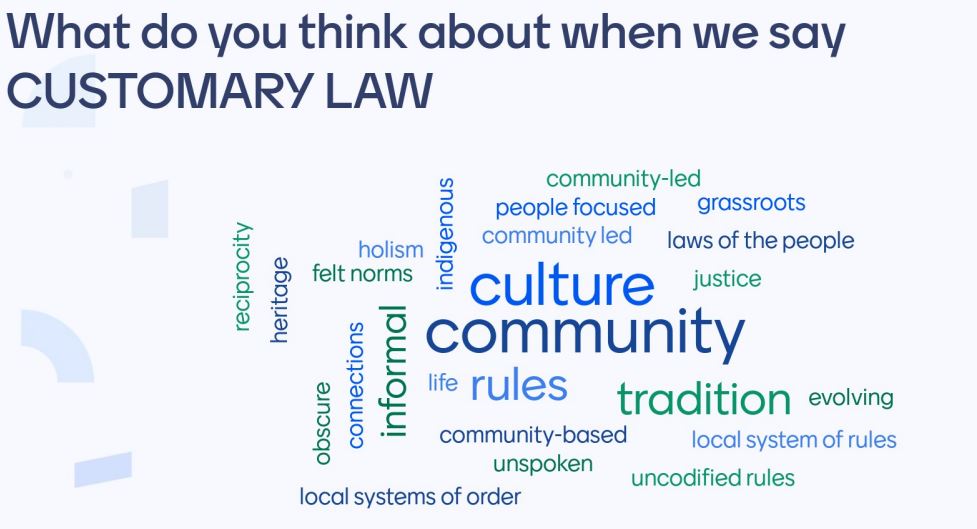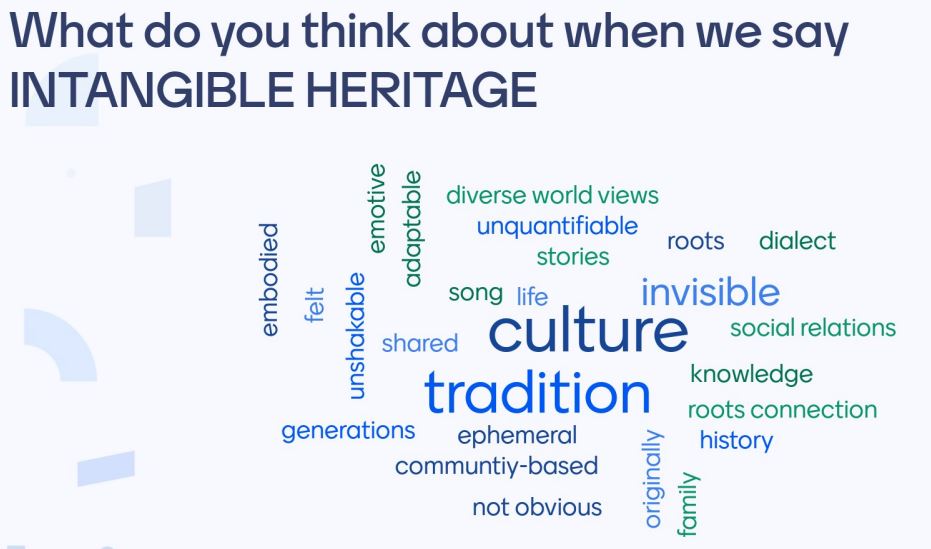Customary Law, Tangible & Intangible Heritage, and ocean governance workshops

For the International Year of Artisanal Fisheries and Aquaculture (IYAFA), the One Ocean Hub’s Customary Laws of the Coast and Sea Research Group are in the midst of organising a series of workshops on customary laws and (in)tangible heritage within ocean governance. These are being organised by Bola Erinosho (University of Cape Coast), Mia Strand (Nelson Mandela University), and David Wilson (University of Strathclyde). Mia and David are early career researchers.
This forms part of the One Ocean Hub’s IYAFA programme with the support of the UN Food and Agriculture Organization (FAO) and the UN Office of the High Commissioner for Human Rights (OHCHR).
These workshops are part of a series of initiatives to support the protection of human rights in the context of the implementation of the Voluntary Guidelines for Securing Sustainable Small-Scale Fisheries in the Context of Food Security and Poverty Eradication (SSF Guidelines).
Following our first successful workshop in May 2022, we are planning to hold four further half-day workshops in the second half of 2022.
Alongside an overview of key points arising from the first workshop, a sketch of these workshops is included below, outlining some of the central themes and issues that we intend to explore. These may be revised and altered as the workshops progress.
Overview of Workshop 1. Overview, May 2022:
Speakers:
This first workshop of the series focused on scene-setting and baseline setting focusing on current developments and recent questions surrounding customary laws and tangible / intangible heritage within ocean governance processes.
The workshop featured two presentations covering recent perspectives from Ghana and South Africa and was followed by discussion where we collectively discussed and shared perspectives, questions, insights, and experiences.
As participants entered the workshop we asked them to answer two questions via Mentimeter:
- What do you think about when we say INTANGIBLE HERITAGE?
- What do you think about when we say CUSTOMARY LAW?
This then produced the following word clouds:


Wilmien Wicomb from the Legal Resources Centre (South Africa), then presented on litigation that has occurred in South Africa over the past decade surrounding fishing rights and, in particular, how fishing rights have been established as customary rights, cultural rights, and human rights.
Wilmien discussed that constitutional recognition of customary law as a separate and independent source of law in South Africa has provided a tool for small-scale fishing communities to assert their rights. In practice, this has required litigation to force the recognition and protection of these rights.
Wilmien then focused on the Gongqose case (2018), surrounding the Dwesa-Cwebe Nature Reserve, in which the Legal Resources Centre defended three fishers who had been arrested for trespassing and attempting to fish without a permit in a Marine Protected Area (MPA). This arrest occurred despite the fact that the fishers are part of the community recognised as owners of the Dwesa-Cwebe Nature Reserve where the MPA lies. As a result, these fishers were not acting unlawfully but, instead, were acting lawfully in line with the community’s customary system, which includes rights to local marine resources. In 2018, following eight years of litigation, the Supreme Court recognised the customary fishing rights of the community and, therefore, found that the indicted fishers were acting lawfully. In this case, fishing rights were also recognised as an expression of the right to culture, a fundamental right that is protected under the Bill of Rights.
Wilmien then discussed the Shell/Searcher cases (2021/2022), surrounding the seismic surveys that oil and gas companies planned to undertake along South Africa’s Wild Coast and West Coast. Wilmien explained that these activities threatened the customary rights and rights to culture of fishing communities along the two coasts. Crucially, there was no direct or meaningful consultation with small-scale fishers surrounding these surveys, which enabled successful interdicts to be filed to stop these planned activities. While the contexts on both coasts are different, the communities involved were able to assert their rights, whether customary rights to fish and to protect environments or their fundamental rights to food and culture.
Wilmien noted that these cases have proven that small-scale fishing communities have fundamental rights that cannot be interfered with without consultation and without doing so in the most sensitive way possible and only as far as is necessary. However, Wilmien also noted caution despite these successes in court, as these are live and ongoing issues in which the protection of customary law and fundamental rights to culture needs more than recognition and weak consultation but instead requires a substantial paradigm shift in ocean governance processes to ensure that fishers do not continue to be left behind.
Next, Balertey Gormey from Hɛn Mpoano, based in Ghana presented on theFar Dwuma Nkɔdo project surrounding the tenure rights of fishing communities in Ghana, particularly rights to landing sites.
After an overview of customary law in Ghana, stressing the importance of location-specific understanding of community natural resource governance and tenure rights, Balertey then explained that landing sites are central to small-scale fishers’ rights and livelihoods in Ghana. If access to their landing sites were denied, then this would ultimately deprive fisherfolk of their livelihoods.
However, a lack of written and recognised documentation surrounding the rights to these landing sites has led to challenges for gaining recognition of these rights in national courts. This is a significant problem due to the ongoing challenges that small-scale fishers face when landing sites are sold to developers for competing land uses such as tourism and real estate development.
Under its fisheries and coastal governance program, Hɛn Mpoano has been looking at how best to secure small-scale fishers’ landing rights, in which the Far Dwuma Nkɔdo project has piloted a programme of mapping and registration of land sites.
The Far Dwuma Nkɔdo project has so far carried out extensive mapping of landing sites along coast of the Central Region, Ada in the Greater Accra Region, and Tsatsukope in Volta Region. Focusing on the case study of British Komenda, Balertey outlined how this process took place in practice through the mapping of landing sites, community engagement, cadastral surveys, and indenture preparation. This resulted in documents being drafted and presented to traditional leaders, which can be used to defend these rights to landing sites in court.
This process, Balertey explained, is the first step in demonstrating how land ownership and documentation processes can be used to strengthen the tenurial rights of fisherfolk to secure their access to coastline space for fisheries-relating activities including berthing of canoes, mending of nets, fish processing and marketing.
The project has also produced maps of the Inshore Exclusive Zone (IEZ) to assist fishers in protecting their fishing grounds from incursion of trawler vessels in IEZ waters. This mapping has supported fishers to understand and promote their rights within those limits.
Balertey emphasised that the ocean is governed from the coast and it is at the coast that the rights of fishers are guaranteed.
Participants were then invited to ask questions.
Key topics included:
- Discussion of reconciling timescales when dealing with live critical issues that require fast responses while also including the right persons in those decisions through lengthy and complex consultation processes.
- Addressing the issue of open access in contexts where limiting open access would infringe on open access rights granted under customary law.
- Recognising that securing and practicing customary rights demands not just community empowerment but also a transformation within conservation and management authorities, requiring a significant amount of training and resources for authorities on the ground.
- Addressing the growing animosities between states, enforcement agencies, and those seeking to protect customary fishing rights, in which polarisation has meant these problems are only being addressed through court decisions rather than in more productive dialogues, even once customary fishing rights have been recognised in court cases.
- The problems arising from the fact that small-scale fishers are not prioritised in ocean-focused development programmes, which are centred largely on economic benefits, particularly surrounding oil and gas extraction.
Following a short break, we then continued to discuss these issues and others in an open forum with all workshop participants. Some of the issues arising from this discussion were captured on our Mural board, which is still live and we would welcome further addition to this to inform our subsequent discussions (click here).
Click here to view the presentations and Q&A.
The following is an indicative schedule for the forthcoming workshops:
Workshop schedule
Workshop 2. Consultation – August / September 2022
This workshop will focus on consultation within ocean governance processes.
Potential questions include:
- How is consultation defined in legal instruments? Does this include any obligations to consult with specific groups of people?
- How is tangible and intangible heritage defined in this?
- How is the history of coastal dispossession recognised within consultation? Does consultation focus predominantly on ‘proximity’? How is this defined? How do the limited / ill-defined requirements of consultation continue the persecution of historically dispossessed groups?
- How can consultation be meaningful in the face of stark power imbalances?
- Balancing desires and needs within the community – what do different groups have to say? Different relationships with the sea? How do they manifest and where do they fit in?
Workshop 3. Human Rights – September / October 2022
This workshop will focus on the role of Human Rights within the context of customary laws, heritage, and ocean governance.
Potential questions include:
- What is the definition of cultural heritage and how is it addressed within the paradigm of human rights?
- How can human rights be employed to support communities and protect tangible / intangible heritage? How has this been argued? How can this best bridge constitutional and international law
- Where are we at today when we speak about human rights? Even where HR are protected in national legislation (constitutions, acts and/or policies) or is recognised in court cases, does it necessarily mean the state respects, protects and fulfills human rights? What does this mean in terms of how we perceive and spend our time working with human rights?
Workshop 4. Boundaries – October / November 2022
This workshop focuses on the role of ocean boundaries in shaping the opportunities and challenges surrounding customary laws and heritage of the coast and sea.
Potential questions include:
- How far out to sea can Indigenous Peoples and Local Communities claim customary rights and interests? Does even the framing of this question raise questions and concerns?
- To what distance can coastal heritage be realistically claimed and where does international law come into play here?
- How can alternative ways of ‘bounding’ the sea be brought into the existing governance regime?
- What new questions are arising? What are the limits to this at present?
Workshop 5. Capacity Building – November / December 2022
This workshop will draw from the previous workshops and discuss the capacity required to shift the current baseline.
Potential questions include:
- In what contexts is there recognition and acknowledgement of customary law? Where is this more likely to be questioned or face delegitimisation? Where is there less familiarity to this? How do we address this?
- To what extent are legal professionals trained in customary law? How far is legal pluralism an accepted norm? Or how far is legal training largely shaped by ‘dominant’ legal doctrine?
- How are experts engaged in relevant cases? Is such engagement common? How can capacity be built to better enable this across countries?
If you have suggestions for speakers, would be interested in presenting your perspectives on and experiences of these issues, or would like to be added to the mailing list surrounding the future workshops then please get in touch with David Wilson on david.wilson.101(at)strath.ac.uk.